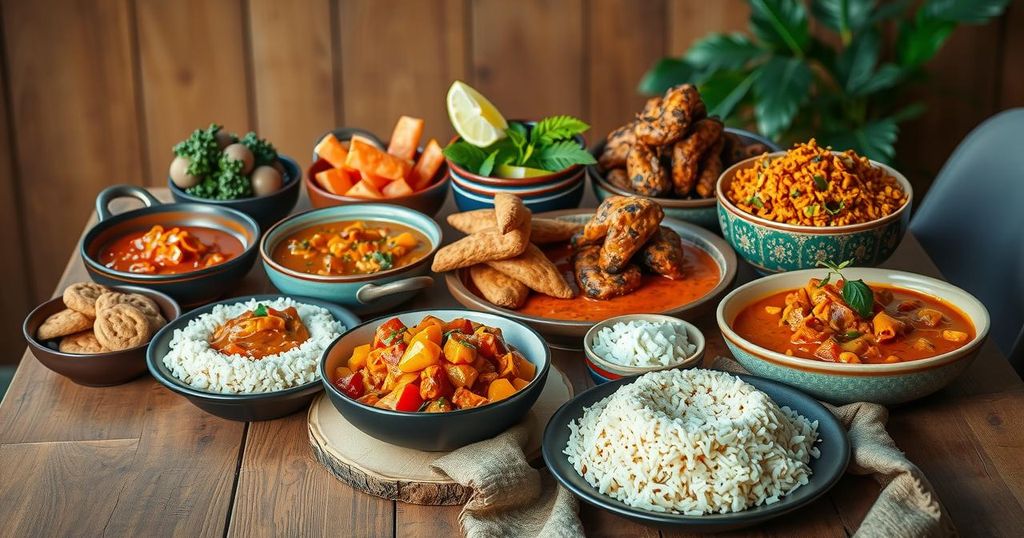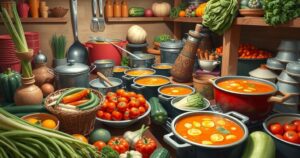Understanding the Restrictions on Nigerian Foods When Traveling to the UK

This article outlines the food items banned from importation into the UK from Nigeria, emphasizing the importance of understanding import regulations to avoid issues at customs. It details six specific Nigerian foods that cannot be taken, including various meats, dairy products, unprocessed shellfish, ungutted fish, fresh produce, and raw nuts and seeds, alongside the reasons for these bans.
Traveling from Nigeria to the United Kingdom presents an exciting opportunity, yet it is vital to recognize the food items that are prohibited or restricted at the UK border. The UK upholds rigorous import regulations to protect public health, preserve local agriculture, and avert the spread of pests and diseases. Consequently, certain Nigerian foods are not permitted.
Familiarizing oneself with these restrictions can aid in avoiding confiscation of food items, financial penalties, or unnecessary delays at customs. It is prudent to verify UK import regulations prior to travel, as these regulations are subject to change. Furthermore, airlines and travel agencies may possess specific guidelines regarding the transport of food, thus confirming their policies in advance is highly recommended.
Herein lies a compilation of six Nigerian foods prohibited from being taken into the UK, along with the rationale behind these regulations.
1. Meat and Meat Products: The importation of any meat, whether raw, cooked, dried, or processed, is strictly forbidden. This category includes beef, chicken, goat meat, suya, kilishi, and meat-based dishes such as nkwobi, aimed at preventing outbreaks of animal diseases, including foot and mouth disease.
2. Milk and Dairy Products: Items such as milk, cheese, butter, and yogurt are prohibited. The sole exception applies to powdered infant milk, infant food, or special medical food, which must be unopened, properly branded, and non-refrigerated. These measures are in place to safeguard against the introduction of harmful bacteria and diseases.
3. Unprocessed Shellfish and Snails: Travelers may not import raw mussels, oysters, or live snails. For those wishing to bring snails, they must be shelled, cooked, and preserved, ensuring food safety and preventing the spread of invasive species.
4. Ungutted Fresh Fish: A maximum of 20kg of fish per person is allowed, provided that any fresh fish is gutted prior to travel. Processed fish such as dried or smoked varieties are acceptable if commercially packaged, whereas unprocessed whole fish is prohibited.
5. Fresh Fruits and Vegetables: Most varieties of fresh fruits and vegetables are restricted unless accompanied by a phytosanitary certificate from the relevant plant health authorities, affirming they are pest- and disease-free. This restriction applies to fruits such as watermelon and berries, as well as leafy vegetables like ugu and bitter leaves.
6. Raw Nuts and Seeds: The importation of unpeeled, unpackaged, and unprocessed nuts and seeds is not permitted without a phytosanitary certificate. This includes items such as raw groundnuts, cashews, and melon seeds, which pose a risk of carrying pests or diseases.
In summary, travelers from Nigeria to the UK must take heed of specific food import restrictions to avoid confiscation, fines, and delays. Prohibited items include meats, dairy, unprocessed shellfish, ungutted fish, fresh fruits and vegetables without certification, and raw nuts and seeds. It is essential for travelers to consult the appropriate guidelines and obtain necessary certifications prior to their journey.
Original Source: businessday.ng







